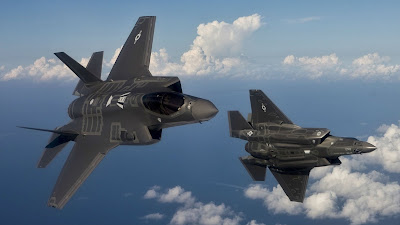Brett Stephens writes that Israel Looks Beyond America -- and is doing so very successfully:
- This past Sunday, at the Munich Security Conference, Israeli Defense Minister Moshe Ya’alon publicly shook hands with former Saudi intelligence chief Prince Turki al-Faisal.
- Last month, Israeli cabinet member Yuval Steinitz went to Abu Dhabi, to be present at the opening of an office at a renewable-energy association.
- Turkey has indicated a willingness to reestablish ties with Israel.
- In October, Indian President Mukherjee was in Israel for a three-day state visit and has indicated that it is about to spend $3 billion on Israeli arms.
- Last year, in June, Israel and Saudi Arabia revealed they were involved in strategic talks
- In March, Egyptian President al-Sisi said in a Washington Post interview that he speaks to Netanyahu “a lot.”
- Japan sees Israel as a model for economic reinvention.
- Chinese investment in Israel rose from $70 million in 2010 to hit $2.7 billion last year.
- Greek Prime Minister Alexis Tsipras is urging cooperation on terrorism and refers to Jerusalem as Israel’s “historic capital.”
- The government of British Prime Minister David Cameron has announced it will move to prevent local councils from passing BDS measures against Israel.
 |
| Defense Minister Moshe Ya'alon (R) shakes hands with Saudi Prince Turki al-Faisal at the Munich Security Conference on February 14, 2016 (Ariel Harmoni/Defense Ministry) |
In fact, Netanyahu has been trying to publicize Israel's improved relationship with some countries in the Arab world. Turning around the usual formulation, Netanyahu says that instead of a solution to the Israeli-Palestinian conflict being the key to peace in the Middle East -- it is the improved Israeli ties with Arab countries that can lead to reaching an agreement with the Palestinian Arabs.
The United States, of course, is still viewed as Israel's primary ally, in terms of support in the UN, as a source of weapons and especially in terms of financial aid. While the stories of friction between Netanyahu and Obama over the years raise questions about the status of the US-Israel relationship, the status quo seems to remain basically unchanged.
But while the issue is usually framed as whether Obama and the US are making changes to the relationship, there are hints that maybe it is time for Israel to be the one distancing itself from the US.
Eli Lake has written that Israelis as well as pro-Israel supporters are supportive of the idea of major decreases in the amount of aid that Israel gets from the US. Noah Pollak of the Emergency Committee for Israel sees support for that aid as providing US leverage over Israeli decisions, as an easy way for politicians to claim to be a friend to Israel -- deserving of political support from the Jewish community and as "easy fodder for critics to claim that the alliance is a burden on the United States or that it’s a one-way street"
Israel's actual need to rely on US military aid is even more questionable. Lake quotes Naftali Bennett, Israel’s minister of economics that “Today, U.S. military aid is roughly 1 percent of Israel’s economy. I think, generally, we need to free ourselves from it."
However, the problem of Israeli reliance on US military aid goes beyond financial considerations.
As doubts about Obama's foreign policy continue, those doubts extend to the ability of the US to enforce the policies it chooses to follow. Caroline Glick writes that Israel cannot afford to continue dependence on US inferior Weapon Systems. She notes a report by Great Britain’s International Institute for Strategic Studies, warning about the erosion of the West's longstanding military technological superiority over Russia, China and other countries.
The F-35's that the US insists Israel purchase instead of their F-15's are an even bigger problem. Because the F-35 relies on the Internet in order to update data files on computers in the US before and after each mission, the planes are open to sabotage. Fiber optic underwater cables are used for that Internet connection, and The New York Times has reported that Russian submarines have been detected near those cables.
A further security issue is the idea of planes that are used by Israel being open to US control and possibly even interference.
Glick suggests a possible solution could be to utilize the changing dynamic of Israeli alliances in the 21st century, as India and Israel are finalizing a series of arms deals that are expected to total $3 billion. That deal is expected to include missile and electronic warfare systems. Glick sees this as the perfect -- and necessary -- opportunity for Israel and India to jointly develop a next generation fighter based on the Israeli prototype of the Lavi jet fighter.
 |
| US F-35 Credit: Youtube / Military Online |
Obama once famously declared that "When there is no daylight, Israel just sits on the sidelines, and that erodes our credibility with the Arab states." In light of the fact that Obama has succeeded on his own to eroded US credibility -- and ability -- in the eyes of the Arab world, it is in Israel's interests to put some distance between herself and the US, to be less dependent on the US and to take advantage of the various alliances and friendships that are available to it around the world.
-----
If you found this post interesting or informative, please  it below. Thanks!
it below. Thanks!
 it below. Thanks!
it below. Thanks! 
No comments:
Post a Comment